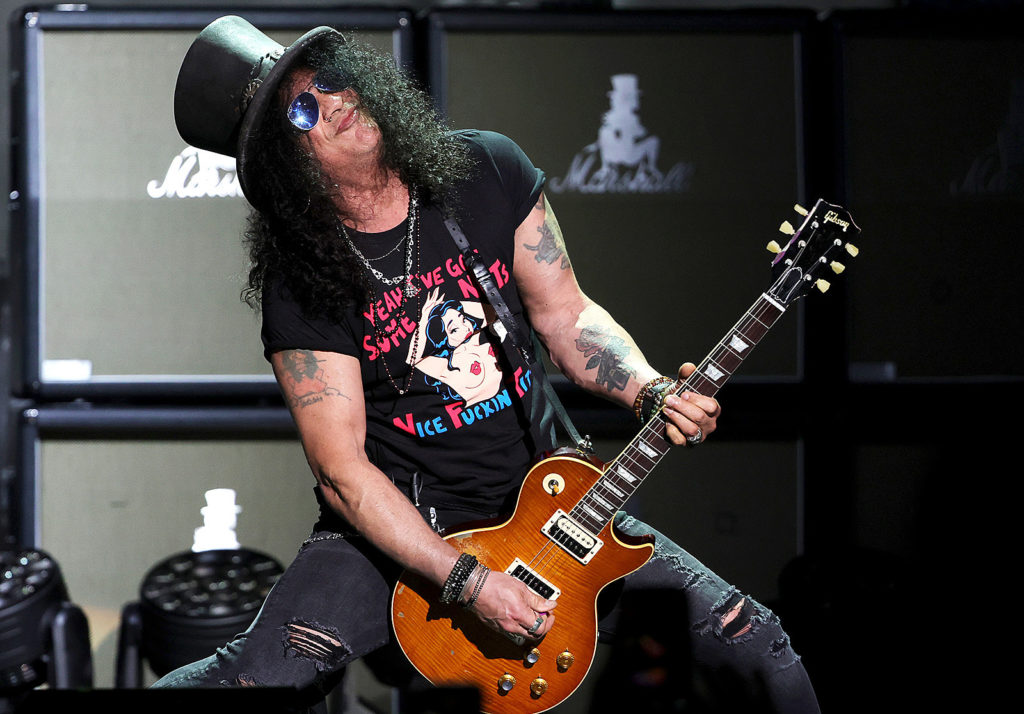Navigating the tumultuous world of a touring rock band is no walk in the park. What might start as an enjoyable jam session among friends takes a different turn when managers impose their will, dictating musical nuances and setting deadlines for the next album. Guns N’ Roses, during their evolution in the late 1980s, resembled a traveling circus. Amid this whirlwind, Slash found himself harboring a sense of disdain for a fellow guitarist.
In the band’s infancy in Los Angeles, Slash and drummer Steven Adler were making waves with LA Guns, while Axl Rose and Izzy Stradlin, hailing from Indiana, were gaining ground with Hollywood Rose. The idea to merge both outfits gave birth to the rechristened Guns N’ Roses, with Duff McKagan from Seattle joining on bass guitar. Amid Slash’s attention-grabbing lead guitar skills, it was Stradlin who brought a thoughtful approach to songwriting whenever he played.
Comparable to artists like Ronnie Wood and Brad Whitford, Stradlin maintained a low-key presence, exuding a sage-like aura during live performances. Despite lacking flashy maneuvers, his tasteful rhythm guitar work added the necessary depth, propelling the band on tracks like ‘Welcome to the Jungle’ and ‘Right Next Door To Hell’.
However, when the colossal double album “Use Your Illusion” came to fruition, Stradlin distanced himself from the rigors of the road. Newly sober, he eschewed the party lifestyle, creating a divide with the rest of the band, particularly with Axl Rose’s extravagant backstage revelries. Coupled with Rose’s habitual tardiness on stage, Stradlin decided to part ways midway through the tour, making room for guitarist Gilby Clarke. While Slash faced challenges during performances, his gripe with Stradlin stemmed from the guitarist’s departure.
Reflecting on those times, Slash revealed his lingering issue with Stradlin, stating, “I was admittedly resentful of that whole trip with Izzy leaving because whatever had gone on for him that forced that sudden change, I was like, man, I died eighteen times prior to that! It didn’t faze me!”
In retrospect, Stradlin’s departure might have been a move for his well-being. As the band earned a reputation as one of the biggest party scenes globally, Stradlin, committed to maintaining his sobriety, chose to fade into the background and occasionally explore solo projects. Considering the pervasive drug culture within the band, the notion of a member exiting the tour in a body bag rather than on a plane was not entirely implausible.

